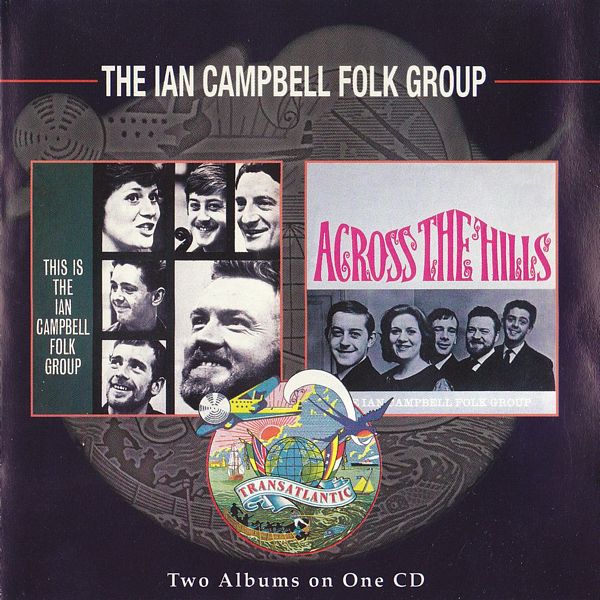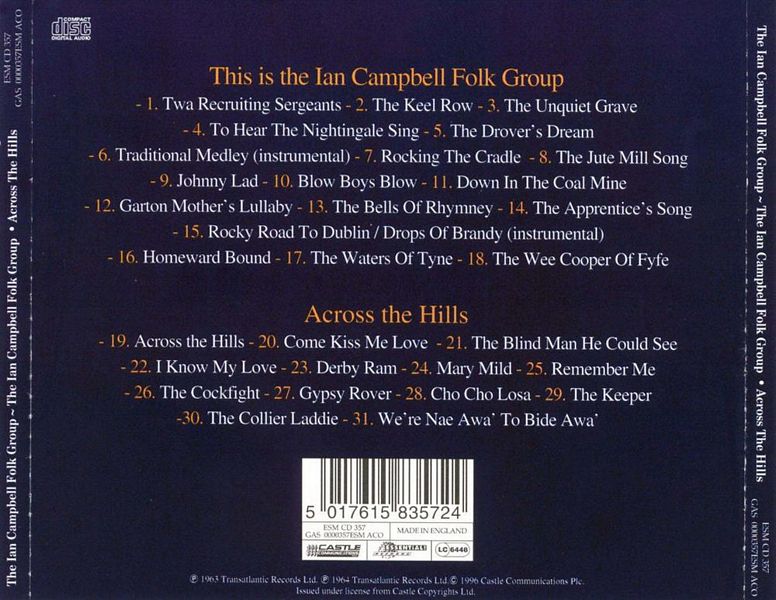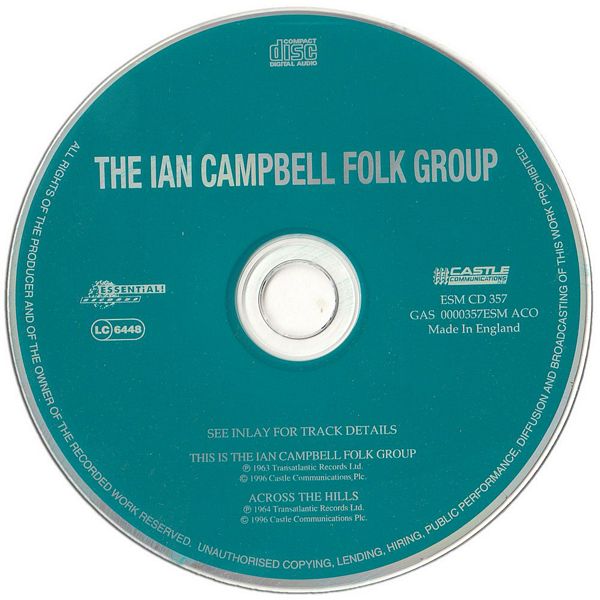

 |
 |
 |


|
Sleeve Notes
It seems like only yesterday, and a hundred years ago … but it was the fifties. First there was the trad jazz boom, out of which flowered the skiffle craze — small vocal groups singing American folk blues to a chugging rhythm accompaniment on guitars, washboard, tea-chest bass. When the craze died, those thousands of amateur youngsters who sweated on the three-chord trick and created the basic pop line-up went on to discover rock 'n' roll, rhythm 'n' blues, whatever; and some stuck to their roots and started the British folksong revival.
Launched in 1956 as the Clarion Skiffle Group, by the time we turned professional in 1963 the Ian Campbell Folk Group had topped the bill at the Royal Albert Hall, were a familiar presence on TV and radio, were working on our second album and running Britain's biggest folksong club. We were blazing a trail: the skiffle group that uniquely found its repertoire in the British folk tradition became the first folk group of the revival, first to feature a fiddler and present traditional instrumentals among their songs and followed on with the first live club recording and the first folk series on British TV.
Throughout the sixties and seventies, the folk scene bloomed and in our travels from venue to venue it was easy to identify the numberless groups that were modelled on us, eagerly awaiting our annual album as a source of material. We were conscious that insofar as we had influenced and shaped the folk revival we had affected the development of popular music in our time.
So, it is with pleasure and pride that I welcome this re-issue of our first two Transatlantic albums. To those younger people born too late to be there I say: this how it was.
IAN CAMPBELL
In the early sixties the Aberdeen singer Ian Campbell and his sister Lorna Campbell ran the phenomenally successful 'Jug of Punch' club in Birmingham, and their group attracted a large following around the country as they were one of the first to develop a predominantly British repertoire, when most folk groups were still imitating their American cousins.
In retrospect, these and the later albums they made for Transatlantic were enormously influential on the new generation of singers and players who came through the folk revival of the sixties, many performers using the Campbells' versions of rediscovered traditional songs. The original line-up of the Ian Campbell Folk Group included fiddler Dave Swarbrick, later to become one of the driving forces in Fairport Convention. This the first time these two LP's, originally released in 1963 and 1964, have been re-issued on CD.
Laurence Aston